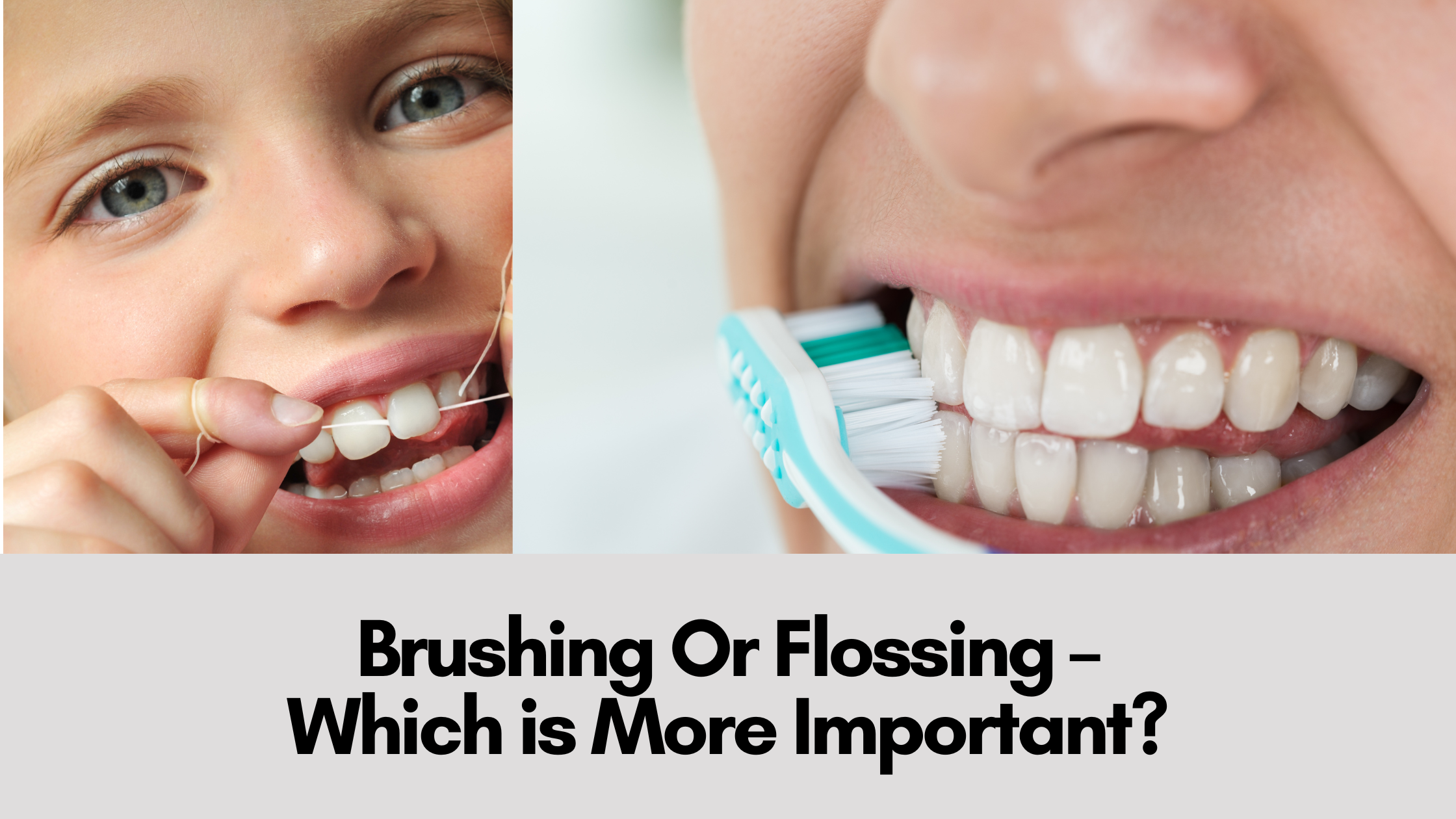 04 Apr 2023
04 Apr 2023 Which one is more important?
Maintaining a good oral health hygiene regimen goes a long way in preserving your overall health. The ADA or the American Dental Association recommends you to brush your teeth at least twice a day, for two minutes with a soft bristles brush. That should be followed by a gentle yet thorough flossing regimen, at least once every day. You might want to ask about the importance of both, and which one is more important in your daily dental care routine. We will try to settle this debate once and for all.
Brushing vs. flossing
Both brushing and flossing are equally important and play almost equally significant roles in preserving your oral health. But, both of these should be done together.
“Flossing and brushing isn’t really an either/or equation for optimum health,”
Ann Laurent, DDS, of Dr. Ann Laurent’s Dental Artistry in Lafayette, Louisiana.
The primary purpose of brushing and flossing your teeth is to remove the plaque build-up, which can lead to gingivitis or periodontal diseases. Plaque consists of active colonies of destructive bacteria, which basically eat and then excrete on our teeth. Brushing only removes a part of the build-up, specifically from the surfaces on the front and the back of your teeth.
Whereas, flossing, enables you to get rid of the plaque from the gaps between your teeth, where the brush possibly cannot reach most of the time, and the place underneath the gums. These distant places beyond the reach of the toothbrush, are the corners where the most destructive microbes reside and multiply themselves if not controlled. Should you fail to control these plaque-causing microbes, these microbes can cause gingivitis, gum diseases and diseases that can hamper your dental health and your overall health conditions.
Flossing 101
To be able make use of dental flosses for your own benefit, you are required to learn how to correctly floss your teeth.
“Proper flossing involves wrapping the floss in a ‘c-shape,’ and covering as much surface area of the tooth as possible. You should cover about half the diameter of the tooth from each angle. Make sure to move the floss up and down along the outer surface and under the gum tissue,” Laurent says. “This way, the floss will clean plaque from both the outer and inner surfaces of your teeth, as well as beneath the gum tissue.”
We have been brushing and flossing our teeth since the beginning of our days. it might sound like an easy peasy lemon squeezy thing to do, but isn’t that simple. A study conducted in 2015 highlighted that most people neglect brushing the oral surfaces and use floss insufficiently.
Flossing your teeth on a regular basis works like wonders in inhibiting the development of dental cavities. According to a study conducted in 2014, proper dental flossing is greatly dependent on you and your habit to floss your teeth every day, correctly.
Some of us who brush their teeth regularly, forget to floss. Flossing isn’t only about getting the little annoying food particles, broccoli or spinach out of your teeth, when stuck. Jonathan Schwartz, DDS commented “It’s really a way to stimulate the gums, reduce plaque, and help lower inflammation in the area.” Flossing your teeth at least once a day is usually enough to get your desired benefits out of the whole process of flossing.
Flossing can also be difficult for some people, especially for young children or toddlers and older adults with arthritis, and even people with braces. Instead of giving up on the process, look out for tools that can ease it for you and help you floss your teeth better.
Ready-to-use dental flossers from the drugstore can make a difference by making it easier for you to floss your teeth if you happen to belong to the categories mentioned above.
Flossing and your health
Maintaining a proper dental hygiene and oral health regimen can not only help keep your breath fresh and keep your gums and teeth healthy, it can also help you keep serious periodontal diseases at bay. Periodontal diseases when allowed to go unchecked can, in turn, invite in more serious issues like cardiovascular or coronary diseases and diabetes. This is exactly why practicing good oral hygiene goes a long way in maintaining your overall health conditions, and not just your mouth.
So next time your reach for your tooth brush, don’t forget to reach for your floss as well. It takes nothing but a little consistency on your part to make it a habit to floss your teeth once every day. This only gives you a confident smile, but also largely benefits your oral health and dental hygiene, and your overall health in the due process.
